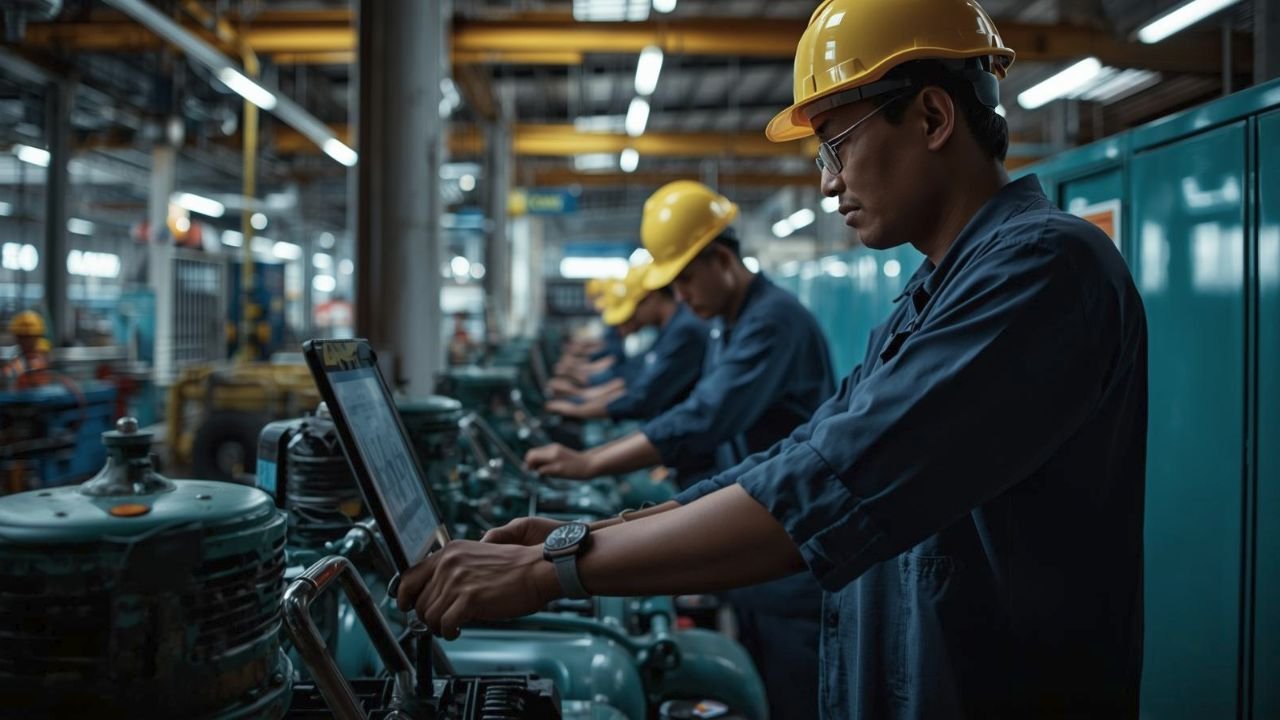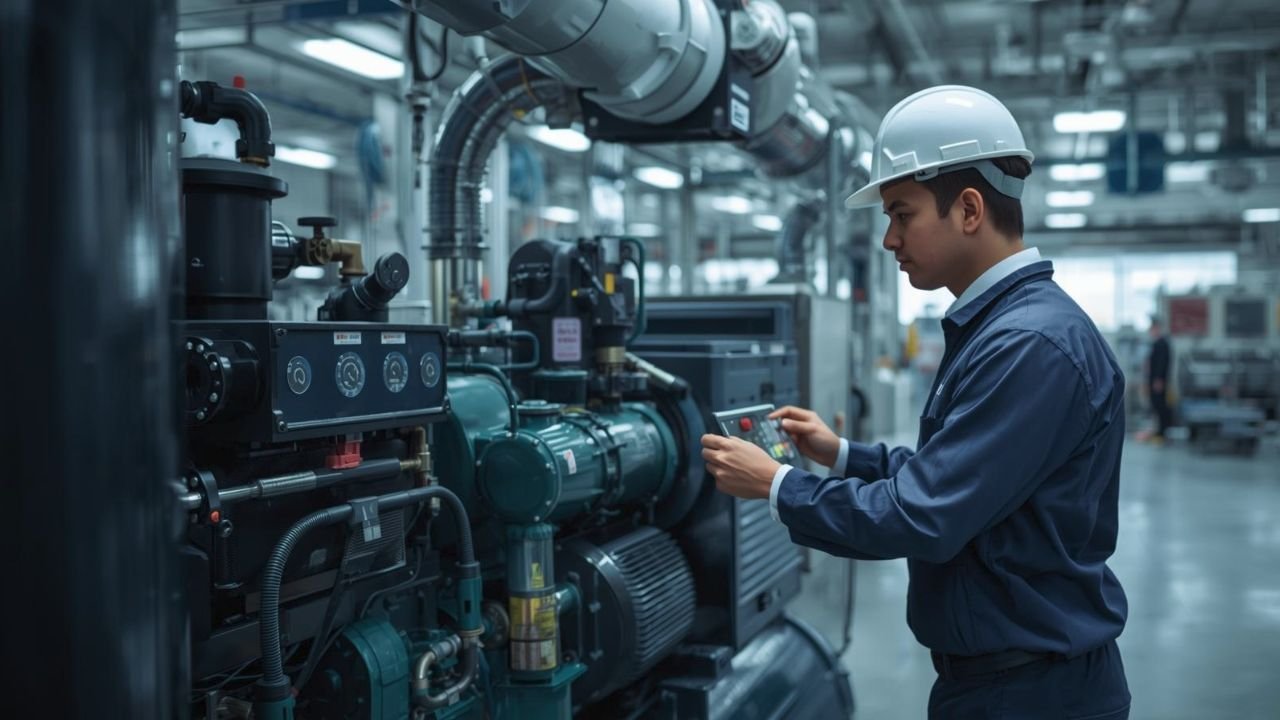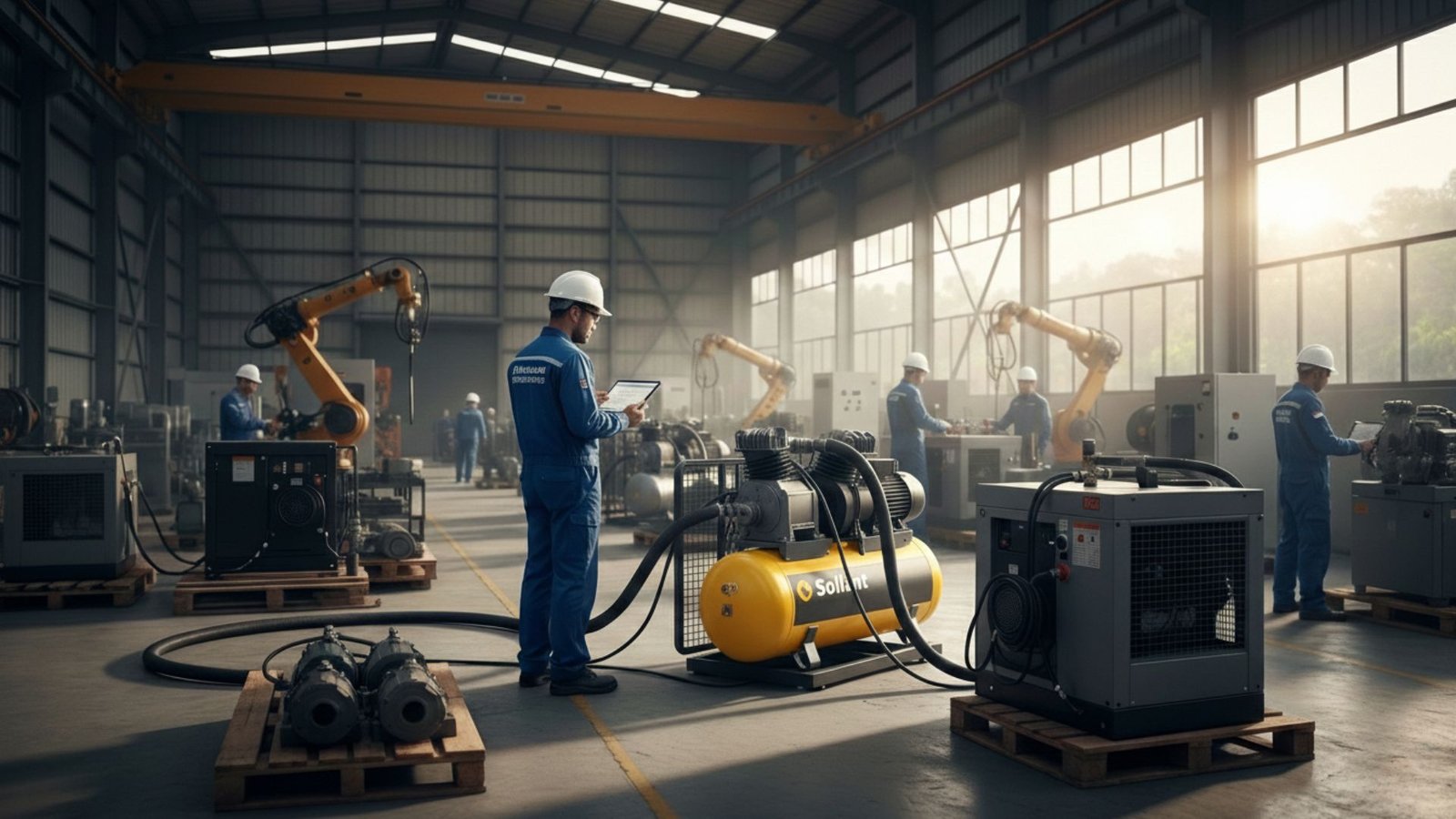PT Nissandi Kompresindo – Air compressors are essential assets in many industrial operations. From manufacturing and construction to automotive and infrastructure projects, compressed air supports productivity and operational efficiency. However, one important decision businesses must make is whether to rent or purchase an air compressor.
Each option offers distinct advantages depending on operational needs, project duration, and budget considerations. Understanding the differences helps businesses make informed decisions that support both performance and cost efficiency. PT Nissandi Kompresindo provides both air compressor sales and rental solutions to meet diverse industrial requirements across Indonesia.
Understanding Air Compressor Purchase
Purchasing an air compressor is often the preferred option for businesses with long-term and continuous operational needs.
Advantages of Purchasing
-
Full ownership of equipment
-
Long-term availability for daily operations
-
Suitable for permanent production facilities
-
Easier integration into fixed industrial systems
Owning an air compressor allows businesses to customize usage and operate without rental time limitations. For facilities with stable production schedules, purchasing can be a cost-effective solution over time.
Considerations When Purchasing
Despite its advantages, purchasing also involves:
-
High upfront investment
-
Ongoing maintenance and repair costs
-
Responsibility for spare parts and servicing
-
Equipment depreciation over time
These factors should be carefully evaluated before committing to ownership.
Understanding Air Compressor Rental
Air compressor rental has become an increasingly popular choice for many industrial projects, especially those with flexible or temporary needs.
Advantages of Renting
-
Lower initial cost
-
No long-term ownership responsibilities
-
Maintenance handled by the service provider
-
Flexibility for short-term or emergency needs
Rental solutions are ideal for construction projects, seasonal operations, temporary production increases, or emergency replacements when owned equipment is unavailable.
When Rental Is the Better Option
Renting an air compressor may be the smarter choice if your business:
-
Runs short-term or project-based operations
-
Needs backup equipment during maintenance or breakdowns
-
Wants to avoid high upfront capital expenditure
-
Requires quick deployment for urgent projects
PT Nissandi Kompresindo offers flexible rental periods and reliable equipment to support these operational scenarios.
Comparing Long-Term Costs
While purchasing may appear cost-effective over several years, rental can provide better cost control for businesses that do not require continuous compressor usage. Renting eliminates costs related to storage, depreciation, and long-term maintenance.
Evaluating actual usage patterns is key to determining which option delivers better value.
The Importance of Equipment Quality and Support
Whether renting or purchasing, equipment quality and technical support remain critical. As an authorized sales center for Sollant Air Compressors in Indonesia, PT Nissandi Kompresindo ensures that customers receive reliable, well-maintained compressors supported by professional expertise.
This reduces operational risks and ensures consistent performance regardless of the chosen option.
Making the Right Decision with Expert Guidance
Choosing between renting and purchasing is not a one-size-fits-all decision. It requires understanding operational demands, financial priorities, and long-term plans.
PT Nissandi Kompresindo provides expert consultation to help businesses evaluate their needs and choose the most practical solution — whether through purchasing high-quality Sollant air compressors or utilizing flexible rental services.
Your Trusted Air Compressor Partner
Both rental and purchase options can support efficient industrial operations when chosen correctly. By working with a reliable partner, businesses gain access to quality equipment, professional service, and dependable support.
PT Nissandi Kompresindo is committed to helping businesses across Indonesia make informed decisions and operate with confidence.
Contact PT Nissandi Kompresindo
Komp. TCI Jl. Jend. A Yani I-6 No.03, Sukmajaya, Jombang, Cilegon, Banten 42416
Phone: +62 254 396 959
Email: info@ptnk.co.id







